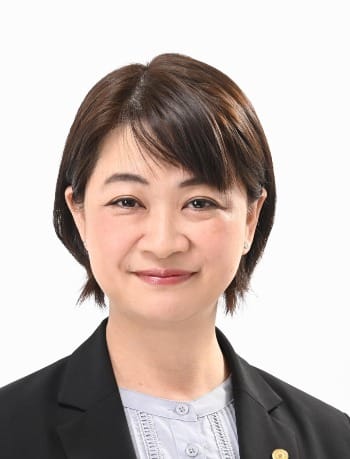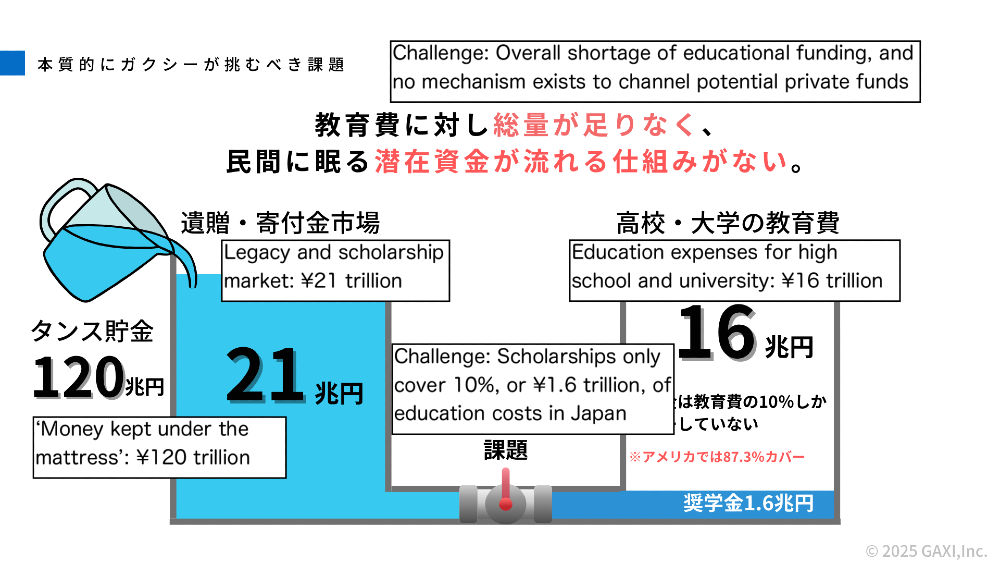Divorce in Japan: Visa & post-divorce navigation with an immigration lawyer
Divorce in Japan has implications beyond the legal dissolution of marriage for foreign residents, affecting visas and other aspects of life, whether married to Japanese nationals or are both foreign citizens. We asked an administrative scrivener/immigration lawyer well-versed in these procedures.

What role can an Immigration Lawyer/Administrative Scrivener play concerning divorce?
While lawyers typically manage the legal proceedings of a divorce in Japan, foreign residents can consult administrative scriveners/immigration lawyers*, like Ms. Junko Sho, from the pre-divorce stage for advice on potential visa issues and navigating post-divorce administrative procedures. It's important to note that the administrative scriveners' direct involvement in visa and administrative procedures usually starts after the divorce is legally concluded, allowing them to focus on the necessary post-divorce arrangements for foreign nationals.
Yumiko: If a foreign national living in Japan gets divorced, their visa and other aspects of life will be affected. While it's common to seek help from a lawyer for divorce, what kind of procedures can an immigration lawyer or administrative scrivener assist with concerning divorce?
Junko Sho: First and foremost, it's essential to understand that an administrative scrivener can only assist after the divorce is finalised. Please also keep in mind that representing someone in legal proceedings and mediation, including the divorce itself, is exclusively the role of a lawyer.
However, you can consult with us, immigration lawyers, while considering divorce. For example, we can advise on the procedures for your residency status after the divorce.
On the other hand, if you are a foreign couple looking for someone to handle the divorce proceedings themselves, you should first consult a lawyer who specialises in the laws of your respective countries or a lawyer from your home country.

Divorce in Japan
Visa changes for spousal visa holders
Y: So, if he or she is a foreigner and their visa is affected, it is a good idea to consult an immigration lawyer when they start thinking about divorce, because the validity of their visa may be restricted.
JS: Yes, the visa status of foreign nationals is affected by divorce, whether the couple consists of two foreign nationals or involves one Japanese partner. This applies to individuals holding ‘Dependent,’ ‘Spouse of Japanese National,’ and ‘Spouse of Permanent Resident’ visas. When both partners are foreign nationals, divorce might lead to a change in visa status if yours is under the ‘Dependent’ category, so it’s important to be aware of this.
A spousal visa is granted when a foreign national marries a Japanese citizen or a foreign permanent resident. If someone holding one of the aforementioned visas gets divorced, they will no longer be considered a spouse and will no longer qualify for that visa. While divorce doesn't automatically mean they have to leave the country immediately, they could be asked to return home at any point. Immigration authorities might summon them, and naturally, they won't be able to renew their current visa.
Y: What actions should a spousal visa holder take if they get divorced?
JS: You will need to change your visa status. If you are employed, this means changing your status to one that aligns with your work, such as Specified Skilled Worker or Technical/Humanities/International Business. If you are raising a minor or dependent child born to a Japanese national, you should also consider applying for Long-Term Resident status.
For Permanent Resident status, while there are no work limitations, you must fulfil specific criteria, such as proving adequate financial resources when you apply. In any of these cases, consulting an immigration lawyer is highly recommended.
Options for parents with dependent children
Y: What about the children's visa status?
JS: If someone with a child considered 'dependent' divorces, their visas should be changed to a 'Long-Term Resident' visa.
Y: According to Japanese law, does 'dependent' mean underage, specifically under 18?
JS: Generally, children without income, including students, are considered 'dependent'. On the other hand, even if a child is generally considered an adult, individual circumstances can be considered. For example, exceptional cases, such as needing constant care, might apply. It's not possible to give a general rule for which cases qualify.
If you have children who are of working age and pursuing employment in Japan, they may be able to switch to a work visa. However, if your child doesn't have a certain level of education or work experience, it could be hard for them to get a work authorisation in Japan. For those who are students, a student visa could be considered. The main benefit of a student visa is that it allows the student to continue living in Japan even if their parents go back to their home country.

Spouse of permanent resident
Y: What happens to a spousal visa holder if they divorce?
JS: If you are the spouse of a permanent resident, you should consider changing to a work visa in the same way as if you were married to a Japanese national. The principle is much the same.
Divorce between permanent residents doesn't specifically impact their visas. However, if the couple relied on their combined income before the divorce, their ability to support themselves when switching to a work visa may be questioned, potentially leading to visa denial.
As mentioned earlier, if both individuals already hold work visas, divorce generally has no particular impact on their immigration status.

Can foreign couples get divorced in Japan?
Y: What about the case where both parties are foreigners divorcing?
JS: The initial question is whether a foreign couple can divorce in Japan. It can be a complex issue. We once handled a case where a Vietnamese couple divorced, and a lawyer in Japan specialising in Vietnamese law took care of it.
In that case, Ms A, a Vietnamese woman, wanted to divorce her husband, Mr B, and intended to remarry another Vietnamese man, Mr X. Through our research, we found that a Vietnamese couple divorcing in Japan cannot simply divorce by mutual agreement; it requires mediation at a Japanese family court. We also informed the Embassy of Vietnam in Japan about the divorce. The exact procedure varies depending on the couple's home country.
Furthermore, it wasn't immediately clear if Ms A could remain in Japan as the spouse of her new partner, Mr X. This is because their home country's laws come into play, such as whether Ms A could legally marry Mr X immediately after her divorce. Japanese Civil Code permits immediate remarriage after divorce*, but Vietnamese law might be different, and this is something an administrative scrivener cannot advise on.
Y: I see. That's complicated. So, in divorce, the dependent and spouse visa are the most critical ones to consider. Even if a spousal visa isn't a factor, the laws of their home countries still play a role, right?
JS: Yes. There aren't many lawyers in Japan who know the laws of other countries well, so it’s important to get advice from a specialist or a lawyer in your own country.
Why involve an administrative lawyer?
Drafting a divorce agreement
Y: Besides visas, could you give us some examples of how an administrative scrivener can assist with divorce?
JS: As an administrative scrivener, I can prepare a divorce agreement. This document serves as the outcome and summary of the discussions between the divorcing parties.
Y: What kind of information is included in the divorce agreement?
JS: It covers aspects such as child custody and support, the division of property, and the splitting of pension benefits accumulated during the marriage.
Ensure a smooth transition to post-divorce life
Y: I understand. While a couple can create a divorce agreement on their own, what advantages does involving an administrative lawyer offer?
JS: Even though an agreement made solely by the couple is legally valid, having an administrative lawyer involved can help the process proceed more smoothly and with less conflict. Having a neutral third party helps keep things calm, and any questions can be addressed immediately. Moreover, it reduces the chances of unnecessary arguments developing.
Of course, if you aim to have a contentious divorce or if you need someone exclusively on your side, you would need to consult a lawyer.
Divorce is an area where many people have misunderstandings. For example, in a divorce where the wife is considered at fault, the children often stay with her. However, the ex-wife might mistakenly believe she isn't entitled to child support because she was the cause of the divorce, or the grandmother might think she can take custody. Under Japanese law, in principle, either the father or the mother has custody of the child. It’s essential to clear up these misunderstandings before proceeding with divorce proceedings.

Build a long-term relationship with an immigration expert in Japan
Y: People often associate divorce with lawyers, but involving an administrative scrivener can clarify each party's rights and obligations efficiently and affordably.
JS: Yes, particularly when starting a new life chapter. As mentioned earlier, having a neutral third party, someone other than your ex-spouse, can help both individuals remain calm and streamline the necessary procedures.
It’s also advisable to consult an immigration lawyer, who is also an administrative scrivener, that you trust. You should have a good rapport with an immigration lawyer with whom you can discuss your initial reasons for coming to Japan, your long-term goals, and different stages of your life.
Y: Foreigners often get caught up in the immediate need for a visa and tend to rely on hearsay for important life matters like divorce, saying things like, ‘I heard this on social media.’
JS: Ideally, though, it’s best to consult the same immigration lawyer or administrative scrivener throughout your time in Japan, not just for visa issues. As an administrative scrivener, I can offer better support to those I’ve worked with before because I understand their situation through their visa applications, unlike someone new who needs a lot of background information. We, administrative scriveners, aim to be the expert you can easily connect with. Think of having an immigration lawyer or administrative scrivener as a ‘lifeline’ in case of an emergency.
Y: By the way, it's a known fact that child support is often not paid after divorce in Japan. What are your thoughts on this?
JS: This is a significant issue. To address this, a child support payment assurance service is available, where guarantee companies act as guarantors for these payments. I would like to discuss the details of this service further.
We will discuss child support insurance in more detail in the second part of this report.
Author's note: This article is not an advertorial. Ms Sho, who has extensive experience as an immigration lawyer, has agreed to be interviewed by Small Business Japan. Her office is available to answer questions in English.
You can contact Office Sho (行政書士しょう事務所) directly through their website.







